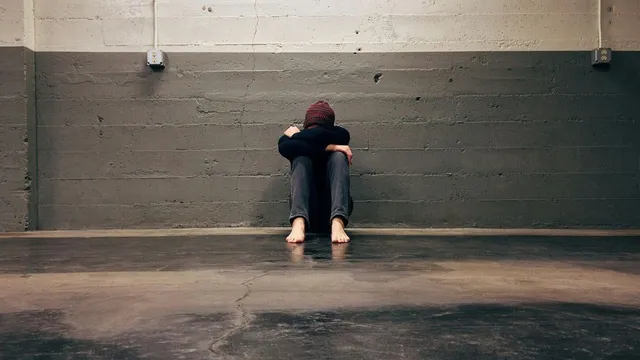Two of the Lone Star State's biggest stars took centerstage at the state capitol this week in support of a bill that some hope will make Texas a major player in the film and TV industry , seeking to build on momentum that has already lured major productions like Landman, 1883 and Fear the Walking Dead to the state. After a star-studded hearing attended by Texas-born actors Matthew McConaughey and Woody Harrelson , the state's bipartisan senate finance committee unanimously voted ― as McConaughey himself might say ― alright, alright, alright for Senate Bill 22. The bill, brought by Republican Sen.
Joan Huffman of Houston, would deliver $500 million every two years to the Texas Moving Image Industry Incentive Fund through 2035, eliminating the irregular ebbs and flows of prior funding that some complain have prompted some productions to film elsewhere. “The current level of reimbursement is not as robust as other states,” Huffman said. “This fact, coupled with inconsistent levels for the program, has put Texas at a disadvantage.

” Positive portrayals of Texans a plus Huffman's bill, which now heads to the full Texas Senate, would build on guidelines set under the incentive fund, raising the top-tier base reimbursement rate to 25% from its current rate of 20%. It also lowers the amount of in-state spending required to qualify for that top tier from $3.5 million to $1.
5 million, a move designed to benefit smaller productions. Chad Gunderson, producer of the Netflix series "The Chosen," a drama about the life of Jesus Christ filmed largely in Midlothian, southwest of Dallas, spoke in favor of the measure's rewards for smaller projects. His production, he noted, was initially too small to qualify for a reimbursement grant.
"A lot of family-friendly, faith-based projects fall into that tier," he told the committee. The bill also offers the potential of further raising grant amounts up to 31% for projects that spend a certain portion of time filming in rural counties and those for which resident military veterans comprise at least 5% of cast and crew. Other incentives reward projects deemed by the governor’s office as reflecting family values and positively portraying Texans.
Texas' incentive fund, created in 2007, has created 189,000 Texas jobs and produced $2.5 billion in in-state spending, Huffman said. According to the state’s Texas Film Commission, figures show every dollar paid out through grants has resulted in a $4.
69 return. “Fort Worth alone has seen $700 million in economic impact,” she said. “While the program has been successful, the time has come to examine a different funding mechanism to provide more consistency and predictability for future applicants.
" Texas has seen a number of high-profile projects come to the state in recent years, including Landman, 1923, Fear the Walking Dead and The Chosen, and supporters of the bill say it could make the state a major industry player. “If we pass this bill, we are immediately at the bargaining table for shooting more films and TV and commercials in our state,” McConaughey, flanked by Harrelson, told the committee. The nearly five-fold return on investment is a boon for local communities, he said, making the point while using his thin-haired, longtime friend as a foil.
"That is money that’s going to local Texas restaurants, hotels, coffee shops, dry cleaners, street rentals, home rentals ― even Woody’s barber," he said with a smile. Film crews need breakfast tacos Adriana Cruz, executive director of the state's economic development and tourism office, noted the Paramount series 1883, which in addition to filming in the cities of Dallas and Fort Worth also shot scenes in farther flung places like Weatherford, Palo Pinto, Granbury and the Texas panhandle. The production resulted in nearly 2,000 production jobs and local spending of $65 million, she said, and under Huffman’s bill would have been eligible for $15.
5 million in grant funding. “From a local economic development perspective, those productions that are coming and buying a year’s worth of lumber from the lumber yard to build sets and hiring carpenters, utilizing a lot of small businesses in that community brings significant impact to that area,” Cruz said. Stephanie Whallon, president of the Texas Film Commission, agreed.
“Dry cleaners get very busy,” Whallon told the committee. “You can make your yearly nut if a large-scale TV show comes to your town." The commission’s “Film Friendly Texas Certified Community” program educates small and medium-sized communities on preparing to host major productions, ensuring they have the proper infrastructure in place.
“When you get Film Friendly certified, you know how to match local businesses to production needs,” Whallon said. “That can include the breakfast taco vendor. To feed a full-size crew you need at least 500 breakfast tacos.
” F-bombs not 'Texas values,' committee member says Despite the unanimous vote, some committee members expressed reservations about what kind of films and programming would be eligible for the state-funded grants. Republican Sen. Donna Campbell of New Braunfels, Texas, said that while the bill prohibits funding for obscene material, it doesn’t explicitly limit foul language.
“There’s no value in using God’s name in vain in movies or anywhere else,” she said. “We’re still in the Bible Belt. Maybe that’s just my two cents, but that should be considered.
” Sen. Paul Bettencourt, a Republican from Houston, agreed, citing frustrations with the Paramount series Landman. “It’s completely wrong, it’s not functionally correct, it doesn’t explain what a landman does,” Bettencourt said.
“No offense, but having Billy Bob Thornton F-bomb every other sentence is not, in my mind, Texas values, so we do need to get a handle on this . . .
It simply is a bad product and not something that Texas taxpayers would want to be supporting.” Cruz told committee members the bill would make Texas competitive with states such as Georgia and New Mexico, places she said production representatives have told her have lured them with heftier incentive programs. “Our goal is to make Texas the moving image industry capital of the United States, if not the world,” Cruz said.
“Part of the goal is for Texans to tell Texas stories, but Texas is such a diverse state geographically that we can actually tell stories that take place in other places. We can double for other locations.” McConaughey said the bill would be “a sustainable and profitable investment for our state and for Texas residents,” one that would encourage Texans who’ve moved elsewhere to work in the industry to return.
He said the bill could provide the foundation for Texas to ultimately become a self-sustaining industry powerhouse. Production companies could partner with local community colleges to train people to become set designers, special effects technicians, hair and makeup specialists and other staff needed to make films. “If we do this, we begin to create our own industry, our own pipeline of film and television – which in turn means producers and financers are not going to want to go to other states,” he said.
“There will be a point where we are not going to need financial incentives from the state because the infrastructure will be in place, and that will be a major game changer.” Brian Gannon, senior director of the Austin Film Commission, told USA TODAY that it used to be that a skilled and robust regional crew base, diverse local locations and support services like industry vendors and friendly city permitting were the ingredients for a healthy production system. That, he said, has changed.
"Now incentives are the number-one priority for productions," Gannon said. "The large-scale productions that make a local economic impact..
.. are generally projects at a budget level that will not land in states or territories without competitive production incentives.
" This article originally appeared on USA TODAY: Texas bill aims to make state major player in film and TV industry.
Sports

Texas Tinseltown? Mathew McConaughey, Woody Harrelson push film industry investment

The bill would boost state efforts to draw film and television series productions and offer incentives for positive portrayal of Texans.















